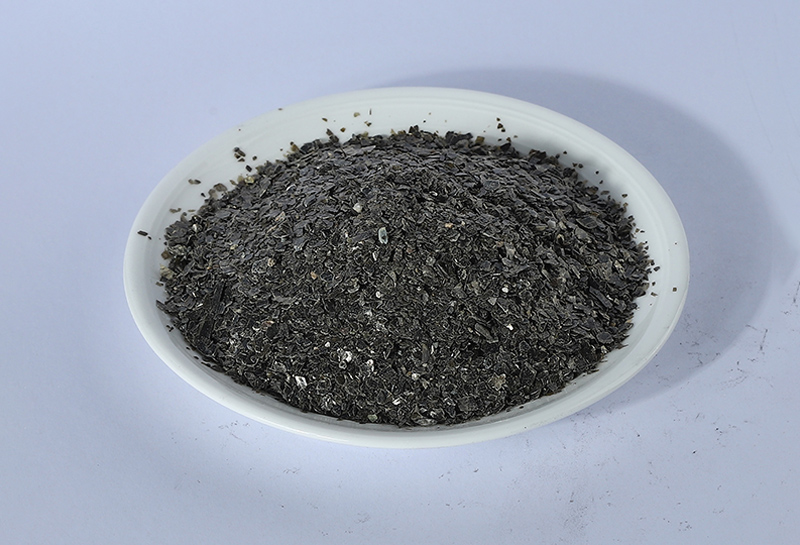Exploring the Safety Concerns Surrounding Mica Powder in Cosmetics
Feb. 20, 2024
In recent years, mica powder has gained popularity in the cosmetic industry for its shimmering effects and versatility. However, concerns about its safety have also emerged. This comprehensive article delves into the question, "Is mica powder safe?" We'll explore various aspects of mica powder safety, including its uses, potential risks, and regulatory measures.

Mica powder is a finely ground mineral pigment known for its reflective properties, making it a popular ingredient in cosmetics, such as eyeshadows, lipsticks, and highlighters. Derived from natural minerals, mica powder adds sparkle and dimension to beauty products, enhancing their aesthetic appeal.
The Safety Debate:
Amidst its widespread use, questions regarding the safety of mica powder have arisen. Some consumers and advocacy groups raise concerns about the presence of heavy metals, such as lead and mercury, in mica-based cosmetics. These contaminants can pose health risks, particularly with long-term exposure through skin absorption or inhalation.
Regulatory Oversight:
To address safety concerns, regulatory agencies like the FDA (Food and Drug Administration) and the European Union have established guidelines and limits for heavy metal content in cosmetics. However, enforcement and monitoring vary across regions, leading to inconsistencies in product safety standards.
Is Mica Powder Safe for Skin?
When used in cosmetics, mica powder is generally considered safe for external application on the skin. Manufacturers often adhere to safety protocols and quality control measures to minimize the risk of contamination. Nonetheless, individuals with sensitive skin or allergies should exercise caution and perform patch tests before using mica-based products.
Potential Risks:
Despite regulatory efforts, the presence of trace amounts of heavy metals in mica powder remains a concern. Prolonged exposure to these contaminants can lead to adverse health effects, including skin irritation, allergic reactions, and in rare cases, toxicity. Moreover, the lack of standardized testing methods complicates the assessment of mica powder safety.
Environmental Impact:
In addition to human health concerns, the mining and processing of mica raise environmental issues, such as deforestation, habitat destruction, and child labor. The unethical practices associated with mica production underscore the need for sustainable sourcing and ethical supply chain management in the cosmetic industry.
Ensuring Safety:
To mitigate risks associated with mica powder, consumers can take proactive measures, such as researching brands that prioritize product safety and transparency. Look for certifications like cruelty-free, vegan, and non-toxic labels, indicating a commitment to ethical and sustainable practices.
FAQs
What are the potential health risks of using mica powder in cosmetics?
Mica powder may contain trace amounts of heavy metals, which can pose health risks, including skin irritation and allergic reactions, particularly with prolonged exposure.
Is mica powder safe for use in DIY cosmetics?
While mica powder is commonly used in DIY beauty recipes, it's essential to source high-quality, cosmetic-grade mica from reputable suppliers to ensure safety and purity.
Are there any alternatives to mica powder in cosmetics?
Yes, several natural and synthetic alternatives, such as mineral pigments, titanium dioxide, and iron oxides, can provide similar effects to mica powder in cosmetics.
How can consumers identify safe mica-based cosmetics?
Look for products that undergo rigorous testing for heavy metal contamination and adhere to regulatory standards. Consider choosing brands with transparent sourcing practices and ethical manufacturing processes.
Can mica powder be inhaled during application?
While unlikely, airborne particles of mica powder can be inhaled during cosmetic application. To minimize inhalation risks, use products in well-ventilated areas and avoid excessive powder dispersion.
What should consumers do if they experience adverse reactions to mica-based cosmetics?
If you experience any adverse reactions, such as skin irritation or allergic symptoms, discontinue use immediately and consult a healthcare professional for guidance and treatment.
Conclusion:
In conclusion, the safety of mica powder in cosmetics remains a complex issue influenced by various factors, including regulatory oversight, manufacturing practices, and ethical considerations. While mica powder can enhance the aesthetic appeal of beauty products, consumers should prioritize safety and make informed choices when selecting cosmetics. By advocating for transparency, sustainability, and accountability within the cosmetic industry, we can promote safer alternatives and protect both consumers and the environment. More details please contact Hebei Chida
34
0
0
None
None

Comments
All Comments (0)